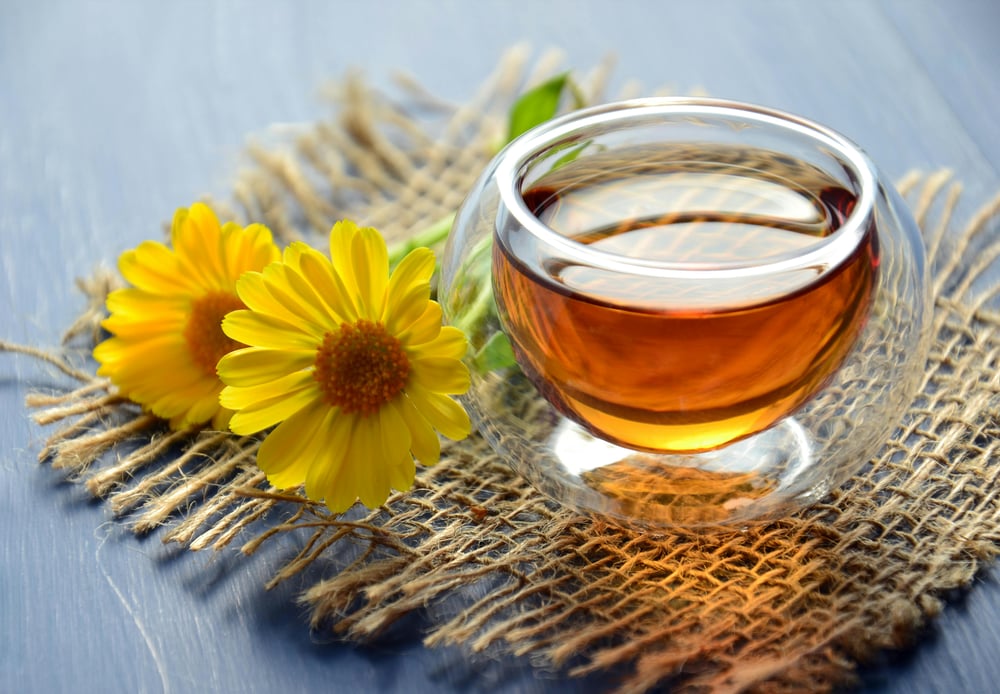HERBAL TEAS FOR RECOVERY SUPPORT
fitness Nutrition Aug 25, 2025 7:13:37 PM Kyle Receno 7 min read

Herbal teas, made from plants, roots, and spices, are a natural and soothing way to support recovery from physical exercise, stress, or minor ailments. Packed with antioxidants, anti-inflammatory compounds, and calming properties, these teas aid muscle repair, reduce inflammation, and promote relaxation. This blog explores the science behind herbal teas, their benefits for recovery, and practical ways to incorporate them into your routine.
Why Herbal Teas Support Recovery
Herbal teas contain bioactive compounds like polyphenols, flavonoids, and essential oils that reduce inflammation, enhance relaxation, and support tissue repair. Unlike caffeinated teas, herbal varieties are typically caffeine-free, making them ideal for post-workout recovery or evening relaxation without disrupting sleep.
Key Benefits:
- Reduced Inflammation: Eases muscle soreness and joint discomfort.
- Enhanced Relaxation: Promotes calm to aid mental and physical recovery.
- Improved Hydration: Supports fluid balance for tissue repair.
- Antioxidant Support: Protects cells from exercise-induced oxidative stress.
- Digestive Health: Soothes the stomach to enhance nutrient absorption.
Top Herbal Teas for Recovery
Below are herbal teas that support recovery, their properties, and how to prepare them.
1. Chamomile Tea
Properties: Anti-inflammatory, calming, mild sedative.
- Why It Helps: Reduces muscle soreness and promotes relaxation for better sleep, aiding recovery.
- Preparation: Steep 1–2 tsp dried chamomile flowers (or 1 tea bag) in 8 oz hot water (200°F) for 5–7 minutes.
- Serving: 1–2 cups post-workout or before bed.
2. Ginger Tea
Properties: Anti-inflammatory, digestive aid, warming.
- Why It Helps: Eases muscle pain and improves circulation to support recovery.
- Preparation: Steep 1–2 tsp fresh grated ginger (or 1 tea bag) in 8 oz hot water for 5–10 minutes. Add honey or lemon for flavor.
- Serving: 1 cup post-workout or after meals.
3. Peppermint Tea
Properties: Muscle relaxant, anti-inflammatory, digestive support.
- Why It Helps: Relieves muscle tension and soothes post-exercise digestive discomfort.
- Preparation: Steep 1–2 tsp dried peppermint leaves (or 1 tea bag) in 8 oz hot water for 5–7 minutes.
- Serving: 1–2 cups post-workout or midday.
4. Turmeric Tea
Properties: Potent anti-inflammatory, antioxidant-rich (curcumin).
- Why It Helps: Reduces joint pain and inflammation from intense exercise.
- Preparation: Steep 1 tsp ground turmeric (or 1 tea bag) with a pinch of black pepper in 8 oz hot water for 5–7 minutes. Add honey or milk for taste.
- Serving: 1 cup post-workout or evening.
5. Rooibos Tea
Properties: Antioxidant-rich, anti-inflammatory, caffeine-free.
- Why It Helps: Protects muscles from oxidative stress and supports hydration.
- Preparation: Steep 1–2 tsp rooibos leaves (or 1 tea bag) in 8 oz hot water for 5–7 minutes.
- Serving: 1–2 cups anytime during the day.
Sample Herbal Tea Recovery Plan
This plan for a 70-kg individual integrates herbal teas to support recovery:
- Post-Workout (Morning/Afternoon): 1 cup ginger tea with honey to reduce muscle soreness and boost circulation (within 30–60 minutes after exercise).
- Midday: 1 cup peppermint tea to relax muscles and aid digestion after lunch.
- Evening: 1–2 cups chamomile tea 30–60 minutes before bed to promote relaxation and sleep.
- Optional: 1 cup turmeric tea post-workout on intense training days for extra anti-inflammatory support.
- Hydration: Pair with 0.7–1 oz water/kg body weight daily (50–70 oz for 70-kg person) to enhance recovery.
Tips for Success
- Choose High-Quality Teas: Opt for organic, loose-leaf teas or reputable tea bags for maximum potency.
- Time Intake Strategically: Drink post-workout or evening teas to align with recovery needs.
- Enhance with Add-Ins: Add honey, lemon, or cinnamon to improve taste and benefits (e.g., honey for soothing, lemon for vitamin C).
- Stay Hydrated: Combine teas with adequate water intake to support tissue repair.
- Limit Sweeteners: Avoid excess sugar to maintain anti-inflammatory benefits.
Common Mistakes to Avoid
- Oversteeping: Steeping too long can make teas bitter; follow recommended times (5–10 minutes).
- Ignoring Sensitivities: Avoid teas like chamomile if allergic to ragweed or related plants.
- Overconsumption: Limit to 2–4 cups daily to avoid digestive upset or diuretic effects.
- Skipping Nutrition: Pair teas with protein (1.6–2.2g/kg) and carbs (4–6g/kg) for optimal recovery.
Who Can Benefit?
Herbal teas for recovery are ideal for:
- Athletes: Reduces soreness and supports post-exercise recovery.
- Fitness Enthusiasts: Eases muscle tension from workouts.
- Chronic Pain Sufferers: Alleviates inflammation-related discomfort.
- Busy Individuals: Promotes relaxation and recovery from stress.
Additional Considerations
- Nutrition Synergy: Pair with anti-inflammatory foods like berries or nuts for enhanced benefits.
- Allergies: Check for sensitivities to herbs (e.g., chamomile, ginger) before use.
- Consult a Professional: Seek advice from a dietitian or doctor if you have medical conditions or are pregnant.
Conclusion
Herbal teas like chamomile, ginger, and turmeric offer natural support for recovery by reducing inflammation, promoting relaxation, and aiding hydration. By incorporating these teas into a daily routine, you can enhance muscle repair, reduce soreness, and support overall well-being. Start with the sample plan and adjust to your needs for optimal results.
Disclaimer: Consult a dietitian or healthcare provider before adding herbal teas, especially if you have allergies, medical conditions, or are pregnant.
